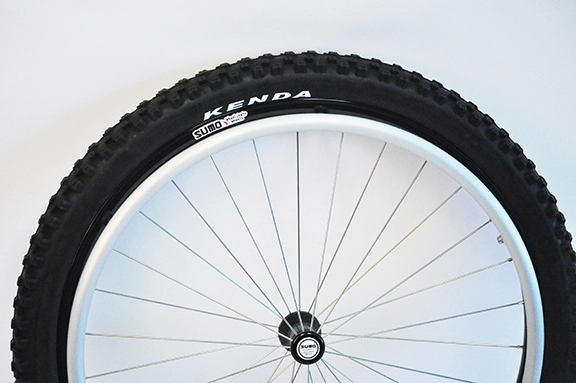
Your wheelchair gets you where you need to go. But does it do so in a practical yet stylish way? If not, adaptive add-ons offer useful and snazzy ways to improve your ride.
Rough, uneven, and soft surfaces can present problems for wheelchair users who want to venture beyond the usual routine. For the adventurous, all-terrain and sports wheelchairs are an option, albeit a pricey one. Some cost-effective alternatives are available, though: Adaptive off-road equipment for standard wheelchairs goes for a fraction of the price of specialized wheelchairs.
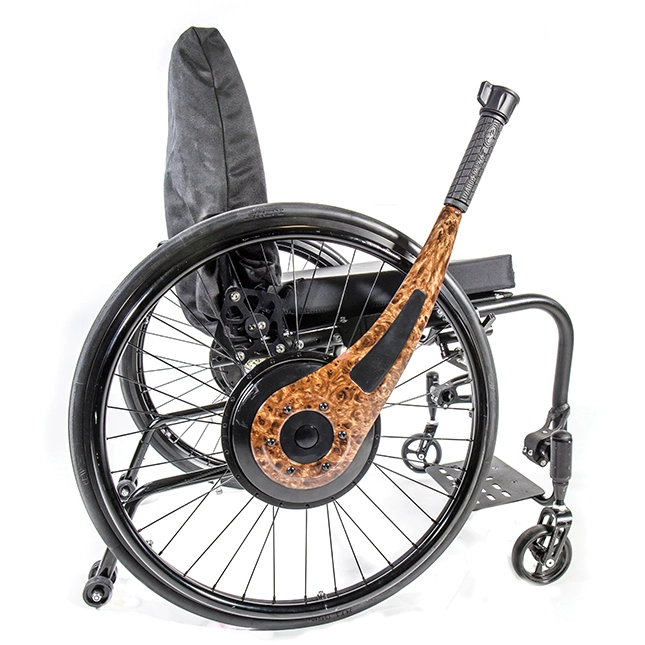
Image courtesy of Innovations Health.
Off-road wheels, such as those made by SUMO, can be fitted to regular wheelchairs to offer greater suspension and height. Off-road knobby tires (e.g., the Kenda Nevegal Knobby Wheelchair Tire) provide extra traction for rough surfaces. Retail vendors include www.caremedicalsource.com, www.sportaid.com, and www.ideamobility.com. Depending on materials, style, and make, off-road wheels may cost $300-$1,000, and off-road tires $30-$80.
Another possibility for wheelchair travel over rough terrain is adaptive equipment that raises the chair’s front casters and extends the frame via the addition of another, larger wheel. This distributes weight over a larger area and reduces drag, thus making it roll more easily over uneven surfaces. FreeWheel manufactures such a kit, which retails for $599 through companies such as www.livingspinal.com, www.ideamobility.com, and www.gofreewheel.com.
A different kind of mobility adaptation for wheelchair users is the lever-based propulsion and braking adapter system. Adding levers to the wheels gives the user greater torque and leverage, so that much less force is required to increase speed or to brake. Wijit makes these lever-based adapters, and vendors such as www.livingspinal.com, www.innovationshealth.com, and www.indemedical.com sell them for around $4,500, although used ones can be found for less.
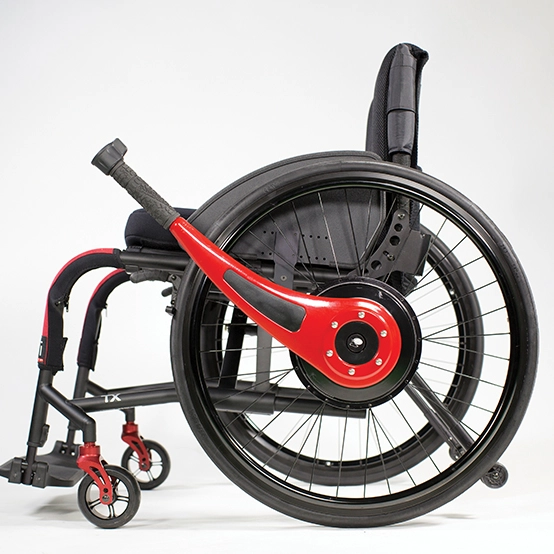
Image courtesy of Innovations Health.
If you travel in places where others may not expect to see wheelchair users, particularly in vehicle traffic, it may be worthwhile to consider investing in a visibility-increasing flag. All major wheelchair accessory vendors carry these safety items for $10-$30.
Harsh weather conditions—such as blazing sun or pouring rain—can make outdoor wheelchair travel unpleasant. One way to counter both sun and rain is to deploy a detachable canopy, which will make moving about your neighborhood more comfortable.
Diestco is the main supplier of wheelchair canopies, but other models are produced, such as those from Convaid. Diestco makes the WeatherBreaker, which is suspended from two mounting poles that are attached to a wheelchair before the canopy is put on, a process that should take about 20 minutes. It comes in base, vented, and max protection models. They can be purchased through vendors such as www.amazon.com, www.spinlife.com, and www.americanwheelchairs.com. Prices start at around $160 for the base model.
Determining how to carry your stuff as a wheelchair user is no simple matter. Happily, many options exist. Backpacks specifically designed for wheelchairs come in an array of shapes, sizes, styles, and colors, and all wheelchair accessory dealers sell them. Their prices start as low as under $15 for a basic one (www.atcmedical.com) and go as high as $159 for a Superpac (www.1800wheelchair.com).
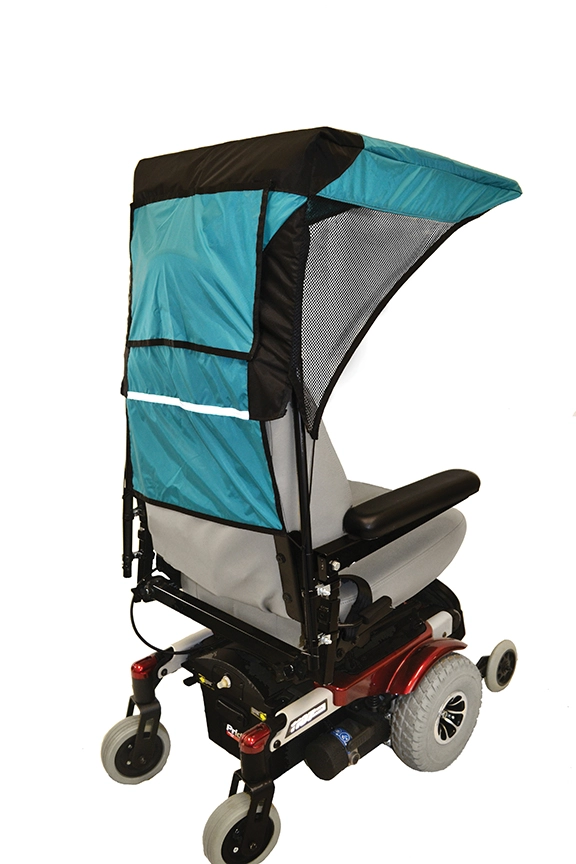
Image courtesy of Diestco.
A less-obtrusive means to stash your belongings may be the EZ-Access Wheelchair Underneath Carrier, which is a large mesh pouch that attaches underneath the seat. It also retails through major vendors, starting at around $32.
Wheelchair trays are another solution for where to put your things, specifically when you want to eat or work. There are several types from which to choose, including swing-away, attachable, collapsible, half, and lap trays. These are available through many vendors including www.abledata.com, www.therafin.com, and www.rehabmart.com. Prices vary from between $24 and $350, depending on the manufacturer, the materials, and the sophistication of construction.
Where to put your drink while you are wheeling around is a question often faced by wheelchair users. Attachable drink holders are the answer. Most wheelchair accessory retailers include these in their inventory for $12-$28.
Several more add-on possibilities include attachable snowblades, fishing pole holders, mini-trailers, brake extenders, headrest audio speakers, wheel spoke lights, cushions and padded backs, and colorful seat covers. So, there are lots of options for accessorizing your ride. If you search and don’t find the add-on you want for your wheelchair, you may find something else—an opportunity to develop a new product for the market.
Editor’s Note: Because of the vast number of wheelchair accessories that are available and the numerous companies that provide them, we were only able to include examples. The inclusion of products or companies in this article is not an endorsement.
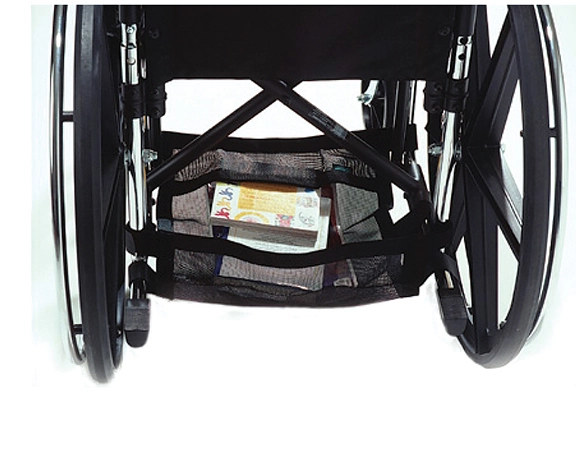
Image courtesy of EZ-ACCESS.



